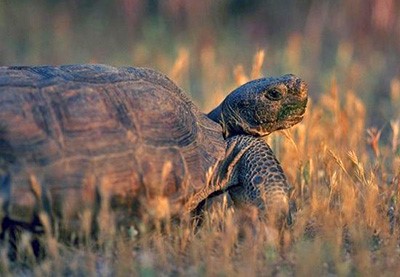
Introduction
Wildlife rehabilitators in California serve an important and unique role by:
- ensuring the highest standards of care and treatment of sick, injured, and orphaned native wildlife for their release to the wild;
- supporting wildlife disease surveillance by CDFW and agency partners; and
- providing wildlife conservation education to diverse local communities.
For wildlife rehabilitation to reach its full potential, CDFW strives to ensure:
- a deeper understanding and appreciation of the ethical standards and expertise of wildlife rehabilitators, their dedicated staff and volunteers;
- compliance with all laws and permit conditions;
- elimination of mal-imprinted and habituated rehabilitation animals; and
- humane euthanasia is provided without hesitation or delay, as appropriate.
Continuing Education
California wildlife rehabilitators are required complete continuing education hours each year. Each wildlife rehabilitator - their facility, staff, and volunteers - have unique needs based on various factors, and must determine the continuing education that will be most beneficial. CDFW supports various options for continuing education that may include CDFW and external training opportunities. Wildlife rehabilitators can also stay informed of current best practices, accepted techniques, and the latest advancements in wildlife rehabilitation by joining a professional organization dedicated to serving wildlife rehabilitation practitioners.
Resources
CDFW regularly provides technical guidance and assistance to support permitted wildlife rehabilitators throughout the state.
Funding Opportunities
CDFW provides limited funding through the Native Wildlife Rehabilitation Grants Program. This competitive grant program is fully funded through the Native California Wildlife Rehabilitation Voluntary Tax Contribution Fund established pursuant Fish and Game Code Section 1773. These grants distribute critical funds to support the cost of animal care, enclosures, special diet, veterinary medical treatment, and facility maintenance.